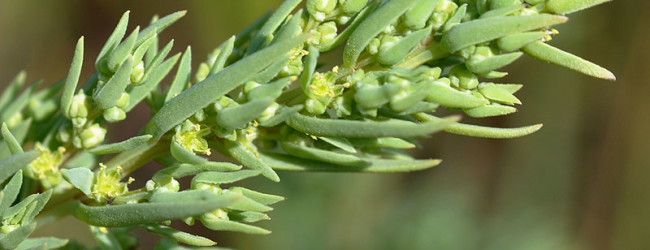African governments must do more to control the planting of genetically modified (GM) crops that could affect smallholders, says a report by Friends of the Earth International.
The report from the environmental NGO says international agricultural companies wield too much influence over safety and trade legislation related to GM organisms (GMOs) in Africa. As a result, many governments ignore the threats these crops may pose to local farmers, it says.
“The laws are there or are being developed, but they are the wrong laws promoting the interests of the wrong group.”
Haidee Swanby, African Centre for Biosafety
Who benefits from GM crops? was released last month (23 February). It looks at the quality of GMO legislation around the world.
Report author Haidee Swanby, a researcher at the South Africa-based African Centre for Biosafety, which campaigns for food sovereignty, says the influence of pro-industry lobby groups lowers safety standards. Laws in many African countries are “essentially GMO-permitting” rather than safety focused, she says.
“The laws are there or are being developed, but they are the wrong laws promoting the interests of the wrong group,” Swanby tells SciDev.Net.
In Africa, only Burkina Faso, Egypt, South Africa and Sudan grow GM crops commercially, according to the report. In contrast, it says, Angola, Ethiopia, Kenya, Lesotho, Madagascar, Malawi, Mozambique, Swaziland, Tanzania, Zambia and Zimbabwe have strict controls on the growth and sale of GMOs.
But many of these countries are under severe pressure from international businesses to trial GMOs and grow them commercially, the report warns. This puts small-scale farmers at risk of competition, the report says. A lack of strict regulation also facilitates the spreading of untested GMO crops, which may still suffer from issues around toxicology and cause allergies, to neighbouring fields.
Swanby says GM technology is inappropriate for the smallholder systems prevalent in Africa. “It is designed for the kind of large-scale, capital intensive monocrop systems that operate in industrialised countries,” she says.
But the African Biosafety Network of Expertise, which is run by the African Union to advise countries on biohazards, dismisses the report’s warnings of undue influence from large companies. “African countries are in no way forced to accept GM technology,” says a spokesperson for the network.
And Daniel Otunge, coordinator of the Open Forum on Agricultural Biotechnology in Africa at the not-for-profit African Agricultural Technology Foundation, says the report is an old vendetta against a new technology. “GM crops are as safe if not safer than their conventional counterparts,” he says. “Modern biotechnology is about science, not propaganda against multinationals.”
Ed Rybicki, a microbiologist at the University of Cape Town, South Africa, says GMOs should pose no risk to people if proper legislation is in place. He says GM crops are subjected to a regime of safety and toxicological testing that is unparalleled in agriculture.
Instead of being averse to the technology, Rybicki says, African governments should learn from countries such as Burkina Faso and South Africa about how to implement suitable legislation, including the registration of GMOs.








